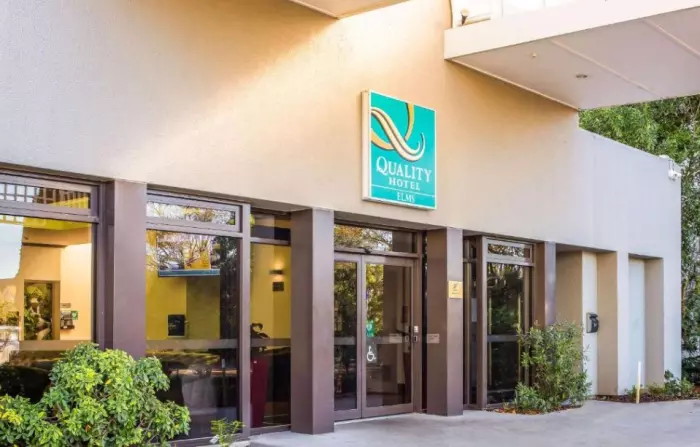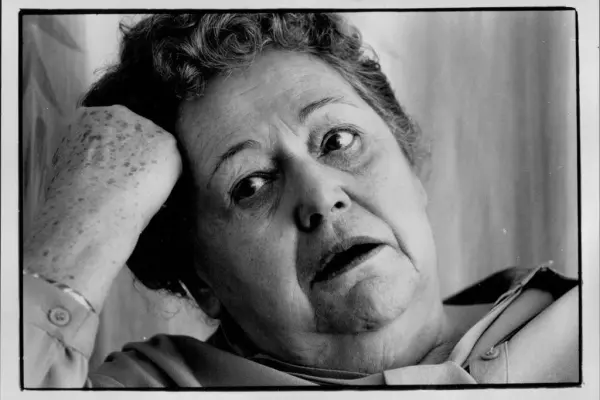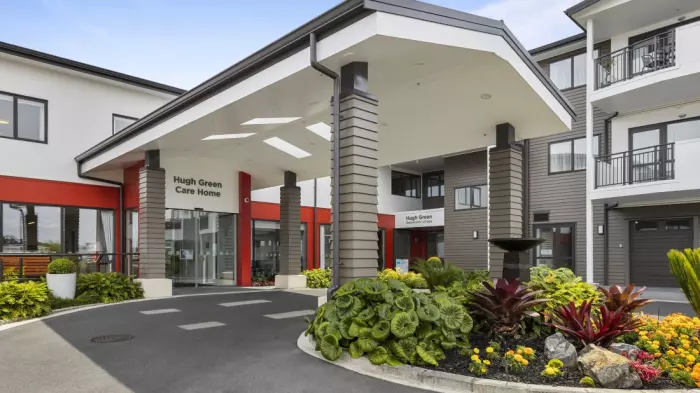The 85-room Quality Hotel Elms on Papanui Rd, Christchurch will be added to the pool of 32 managed isolation facilities from November, meaning there will be 6,260 rooms available for border arrivals.
The additional rooms come after the MIQ booking system was overwhelmed by demand from returnees and visitors on Monday, with more than 25,000 people applying for 3,200 rooms currently available from now until the end of the year.
Covid response minister Chris Hipkins said the Elms was chosen ahead of other hotels in Auckland and Rotorua which were rejected “primarily because of health and MIQ workforce constraints”.
The prospect of additional MIQ hotels in Rotorua was considered controversial, with Waiaraki MP Rawiri Waititi suggesting the Lakes District Health Board's slow vaccination progress made further MIQ facilities “unwelcome”.
Hipkins said there were no suitable facilities that fit “rigorous safety, public health and staffing criteria” in Hamilton or Wellington.
The Elms will be the seventh MIQ facility in Christchurch, while there are only two – the Bay Plaza and Grand Mercure – in Wellington.
Hotel Council Aotearoa (HCA) strategic director James Doolan said it “hardly seems possible” no more suitable hotels could be found.
HCA, which represents the broad base of NZ hoteliers, has counted 95 hotels with almost 15,000 rooms not currently in use for MIQ. Auckland’s 409 room Cordis, the Sky City hotel and Sky City Grand, with a combined 645 rooms and the 280 room Rydges in Wellington are the largest non-MIQ hotels.
Unchanged protocols
Doolan said while he appreciated health protocols needed to be met, he would have expected the standards to keep up with “how much we now know about the pandemic”.
“It’s coming up to the second Christmas with closed borders and it seems strange that we have the same systems, same criteria in place as 18 months ago, when we were facing the unknown and without a vaccine in play.”
A government spokesperson said the Elms would require more than 40 workers to run the facility as a MIQ, round the clock, in addition to hotel staff.
Doolan said the council favoured privately-run MIQ facilities, or anything that "helps the industry recover".
According to the council’s estimates, revenue per room has fallen to just $82 for those hotels open to the general public over the past year, down from $214 in February 2020.
Despite its rolling lockdowns, Auckland had still fared better overall than other major tourism regions, with occupancy at about 50%, versus 33% for Queenstown.
“But I think there’d be plenty of hotels who would rather be doing MIQ work than standing empty,” Doolan said.
Hipkins said as well as bringing the new facility on board, the government was working on medium and long term options for a "sustainable and stable MIQ model".
He said that was largely dependent on vaccination rates here and overseas.
“We’re progressing a pilot for a small number of fully vaccinated New Zealanders to be able to travel overseas and isolate in approved accommodation when they return, and will learn a lot from that."
That, he said, could lead to shorter stays for vaccinated people.






